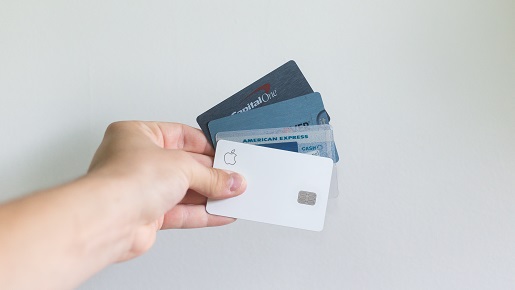Credit card is one of the great inventions of the financial industry. They are a convenient way to pay bills or products like groceries, dining out, and buy things over the internet. If a person has too many credit cards, it can quickly become overwhelming. They can push a user into a debt trap by missing payments.
So, how many credit cards should a person have? This is not a simple question, it depends on factors such as income, spending habits, and overall financial situation. Ideally, users should keep a primary credit card for most of their expenses. The ideal number of credit cards for an individual may vary from person. Usually, a good rule of thumb is to have no more than three to six credit cards. This number of cards, helps a user to enjoy the benefits they offer. They are not bogged down by too many bills or worrying about very high credit card balances.
Another major benefit of having a few credit cards is that it can help a user to build a good credit score. It can show that a user is financially responsible.
On the other hand, having a few credit cards can help a user to optimize their rewards. For example, you may have one credit card that offers the best rewards for groceries or streaming services, another for travel, and another for everyday purchases.

It’s very important to choose cards that fit a user’s spending criteria. For example, if a user carries a balance on their credit cards, look for a card with a low APR. On the other hand, if they are looking to earn rewards, consider a credit card that offers cash back or travel points.
Choose the credit cards by evaluating your spending habits?
If a card member has a stable income and is financially fine, they can easily pay a monthly card balance, having a few credit cards may be smart. They can You could use certain cards for daily purchases, like gas or groceries, to help you budget and potentially save money.
Many credit cards offer incentives for rewards, travel, or cash back. Loyalty-program credit cards from retail stores often offer points toward purchases or extra discounts.
If a user is just starting out in college or a career, opening just one credit card might be a good option. They can use it to pay bills from a single source, making it easier to track payments. In the meantime, they can accumulate a solid credit history by paying the card on time and keeping it open.

Build the Credit Score without having many credit cards
Contrary to popular belief, if card members have a few credit cards, it can help them build a good credit score. These credit cards on their records can show the banks, credit card companies, and credit bureaus that they are financially responsible. These credit cards would help prove that a card member has a stable income. Making payments on time improves or builds the credit score over time.
A high credit score can make it easier for a user to get loans and mortgages in the future. A good credit score also helps reduce the rate the credit card companies charge to the user. The better the credit score, the lower the APR being charged to a loan account.
Though, it’s important to use these credit cards responsibly in order to build a good credit score. This means paying bills on time, keeping credit card balances low, and avoiding maxing out credit cards. It’s also a good idea to regularly check your credit score and credit report to ensure that the credit information is accurate and up-to-date.
Optimizing Rewards with the Right Credit Cards
Card members can earn the maximum rewards for each transaction if they have the right credit card. Having co-branded credit cards also helps a user to optimize rewards.
If a card member frequently shops for groceries from a retailer. They should consider getting a credit card that offers the best rewards for retailers. This can help them earn more rewards for these everyday expenses.
On the other hand, if a user travels for work or for leisure, they should opt for a credit card that offers travel rewards. The best travel credit cards can help a user earn rewards in the form of miles or hotel points. The card members can then redeem these miles or points on their future travels to earn free flights or hotel rooms.
If a user, uses a credit card for a variety of purchases, they should get a rewards credit card.

Card members can optimize their rewards but they have to choose the right credit cards. This can also help the users get the most value from their credit cards.
Maintaining a Good Credit Score with Responsible Use
Finally, if a customer uses their credit cards responsibly it can help them maintain a good credit score. They have to follow some of the best practices below Here are some tips to help you use your credit cards in a responsible manner:
They should pay their bills on time. Late payments can negatively impact their credit score. Credit cards report to the credit bureaus for late payments or any high charges on the credit card. Always, be sure to pay your credit card bills on time every month.
Credit card members should keep their credit card balances low. High credit card balances can also hurt their credit score. They should always try to keep their balances low. A good rule of thumb is to keep the credit card balances below 30% of the approved credit limit.
Next, users should avoid maxing out their credit cards. Max out credit cards can also harm the credit score. Always try to keep the balances below the credit limit. Card members should also check their credit scores periodically. They can visit Annualcreditreport.com to check for their free credit report.
In conclusion, it is a good practice to keep the number of credit cards to three to five. Too many credit cards can be disastrous. They can overwhelm a user. Always keep your income and financial needs before getting a credit card.
